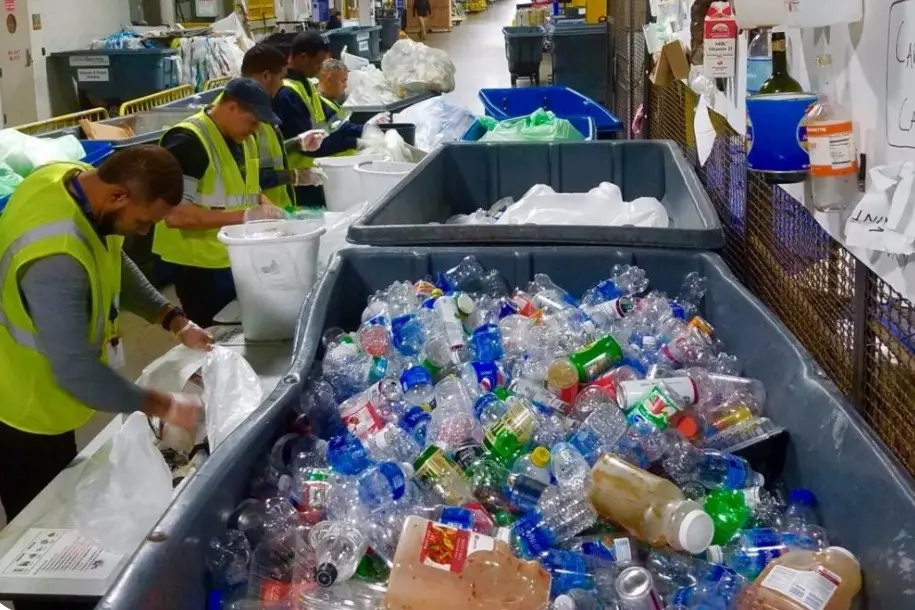Key Takeaways
- Effective commercial recycling can cut costs, improve efficiency, and build a better business reputation, not just support sustainability.
- Employee engagement, regulatory compliance, and regularly updated technologies are vital to a successful recycling program.
- Clear communication and collaboration with service providers help maximize recycling opportunities and efficiency.
- Sharing sustainability results strengthens community relationships and sets a company apart as an environmentally responsible leader.
Recycling Is More Than Just “Going Green”
Commercial recycling is often underestimated in its potential to transform business operations. While most companies understand the positive impact recycling has on the environment, they usually overlook the significant cost savings and operational improvements it can bring. Leaders who see recycling as part of their core business strategy quickly realize how it can slash waste collection expenses, optimize resource use, and even drive growth by appealing to environmentally-conscious customers. Taking a thoughtful approach to planning, measuring, and implementing recycling programs means going beyond the minimum required by law. For example, companies can optimize their services in cities with dynamic waste management needs by working with local partners. Companies that thoughtfully review and optimize their trash collection Houston TX strategy benefit from reduced landfill costs and a far greener corporate footprint—creating savings that are often overlooked but quickly add up.
The environmental impact is enormous. Recycling just a single ton of office paper can save as much as 7,000 gallons of water and prevent 17 mature trees from being cut down. Those numbers add up for any organization handling significant paper, cardboard, and packaging volumes. Unfortunately, many businesses fail to recognize that these tangible savings in water, energy, and raw materials quickly translate into utility bills and supply costs savings. Beyond just “going green,” a well-structured recycling program can fundamentally change how a business spends and saves every year.
Operational Costs Can Decrease With Strategic Recycling
Properly managed recycling can catalyze significant cost reduction and efficiency improvements in almost every industry. It isn’t only about diverting waste from landfills; it’s about rethinking the journey of every item your company uses and discards. Commercial contracts with recycling haulers often allow businesses to negotiate better rates when recycling streams are clean and efficiently sorted, with some materials—like metals, clean cardboard, and plastics—offering rebates or revenue opportunities. Careful monitoring of recycling and waste generation also makes it possible to spot inefficiencies in manufacturing or packaging operations, which opens up opportunities for broader cost-saving process improvements.
Strategic businesses use recycling as a diagnostic tool, regularly tracking what is discarded, in what quantities, and by which departments. This approach keeps trash collection bills low and identifies excessive usage and potential avenues for reuse or upcycling—for example, finding new uses for shipping pallets or repurposing outdated electronics. The financial benefits become apparent when you compare businesses that pay hefty landfill tipping fees with those that separate and sell their recyclable materials in bulk.
Employee Engagement Is Often Overlooked
Employees are at the heart of any recycling program’s success or failure. Yet, companies frequently overlook ongoing training, communication, and support for staff, missing out on a powerful source of program momentum. It isn’t enough to place recycling bins in the breakroom—there must be regular reminders, visual guides, and accessible resources for everyone from frontline workers to senior managers.
Organizations that foster a culture of sustainability with robust training and regular check-ins reap better results over time. Companies prioritizing regular education, feedback, and employee involvement in recycling design see higher participation rates and lower contamination. By celebrating recycling milestones, sharing progress metrics, and providing friendly reminders, businesses encourage staff to participate actively and make good recycling habits part of everyday work life.
Compliance and Regulation Are Critical
Navigating recycling regulations can feel daunting, especially as the laws frequently change. Failure to comply can lead to fines, legal challenges, and loss of public trust. In many places, even minor lapses—such as failing to separate hazardous waste or submitting incomplete reporting—can result in significant penalties. Being proactive with compliance means designating someone to stay up-to-date with local, state, and federal guidelines, and making sure employees follow updated recycling policies.
Building strong relationships with city and state waste management authorities can make compliance easier, providing support and resources when there’s confusion or a need for clarification. Companies that review their policies annually, update their training, and incorporate feedback from regulatory audits or waste haulers are also better prepared to adapt when new recycling requirements roll out.
Recycling Infrastructure Is Continuously Changing
The tools and systems that support business recycling are evolving rapidly. Where once recycling meant bins and periodic pickup, today’s options include smart recycling bins that detect contamination, real-time waste reporting platforms, and mobile training apps. Adopting these technologies means better tracking of what’s tossed, reduced human error, and improved employee engagement. Businesses also leverage on-site composters, digital waste audits, and advanced sorting solutions to reduce the volume of material sent to landfills.
Keeping up with these innovations requires a willingness to trial new approaches—and a mindset that views recycling as an evolving opportunity. Learning from peers and attending waste management industry workshops can provide a competitive edge and help uncover emerging best practices.
Community Perception Matters
How a business handles waste and recycling paints a picture for customers and the broader community. Sharing public progress updates, engaging with local environmental organizations, and celebrating big recycling wins can enhance your company’s brand, drive loyalty, and attract new partners. In many regions, a business’s sustainability record can impact its ability to secure contracts or participate in local initiatives.
By consistently demonstrating a commitment to the environment—and being transparent about successes and setbacks—businesses establish trust, differentiate themselves from less environmentally engaged competitors, and build goodwill. Many also benefit from public recognition, grant funding, or new business opportunities that arise from a strong focus on recycling and waste reduction.
Best Practices For Building A Smarter Commercial Recycling Program
- Conduct a detailed waste audit to map out the primary waste sources, enabling customized and responsive recycling strategies.
- Use bold, graphic signage and hold training sessions to ensure all staff understand recycling procedures and expectations.
- Revisit regulations annually and whenever expanding into a new region to stay ahead of compliance requirements.
- Introduce digital tools for monitoring waste and recycling output, and regularly communicate progress to staff.
- Review contracts with recycling providers every year and consider pilot programs to try out new emerging processes or technologies.
Emphasizing continuous improvement and a willingness to try new tactics will keep your business’s recycling program competitive and aligned with the latest industry best practices.
Looking Ahead At The Future Of Commercial Recycling
The future of commercial recycling is bright, driven by stricter landfill restrictions, sharper compliance expectations, and growing interest in sustainability from customers and communities alike. Companies committed to growth and resilience see recycling as more than a checkbox—it becomes a dynamic component of business strategy that supports cost control, regulatory alignment, and positive brand visibility. By staying curious, engaged with industry developments, and open to innovation, businesses can thrive as environmental leaders while unlocking every benefit modern recycling offers.
Also READ-1700+ Lifetime Love and Happiness in 2025 💖




